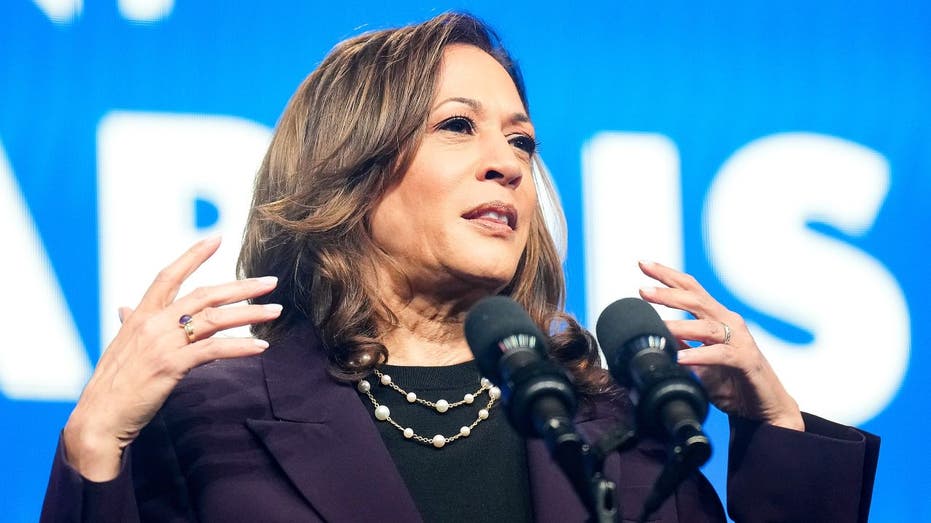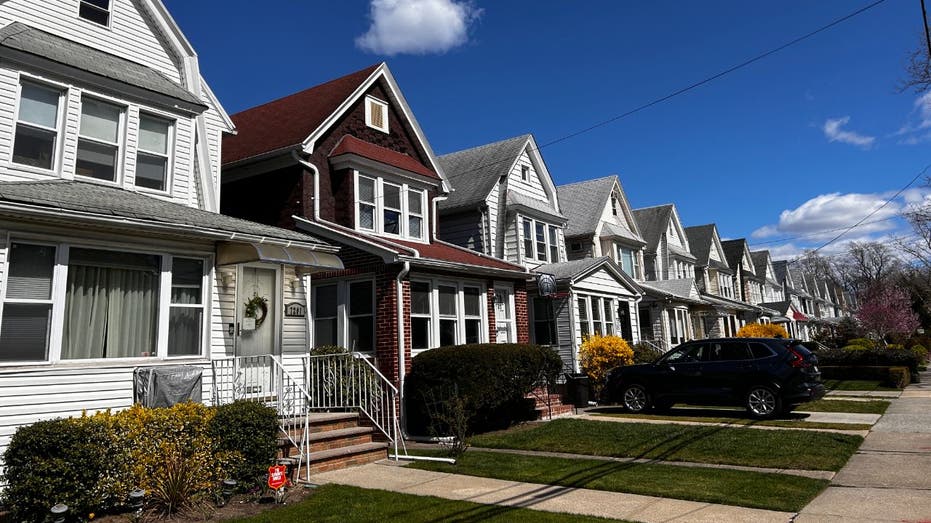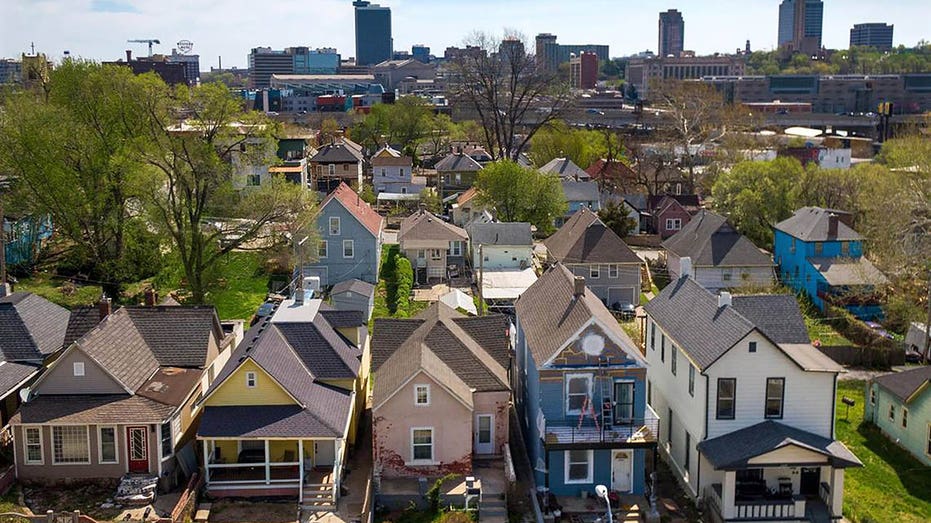Kamala Harris wants 3 million new houses built — is it feasible?
Experts weigh in on the Democratic nominee's ambitious plan for the US building millions more homes over four years
Harris platform is moving America towards communism: Rep. Randy Weber
Rep. Randy Weber, R-Texas, criticizes energy policies coming from the Harris-Walz platform and provides an update on the border crisis.
Vice President Kamala Harris is vowing to address the U.S. housing shortage with a plan she says will result in the construction of three million new housing units over four years if she wins the presidency.
While most economists agree the lack of inventory is contributing to the housing affordability crisis, not all experts are sold on the feasibility of the proposal.

Vice President Kamala Harris addresses the members of the American Federation of Teachers at George R. Brown Convention Center in Houston on July 25. (Elizabeth Conley/Houston Chronicle via Getty Images / Getty Images)
Under Harris' housing plan — which was included in her broader economic agenda rolled out last week — the Democratic presidential nominee proposed a tax incentive for homebuilders who build starter homes sold to first-time homebuyers, expanding the existing tax incentive for businesses that build affordable rental housing, doubling President Biden's proposal for a $20 billion innovation fund to $40 billion for local governments to tackle the issue, and "cutting red tape and needless bureaucracy."
David Burney, academic director of Urban Placemaking Management at the Pratt Institute's School of Architecture, says Harris' plan is a good step in the right direction.
HARRIS PROPOSES $25,000 DOWN PAYMENT ASSISTANCE FOR FIRST-TIME HOMEBUYERS — IS IT A GOOD IDEA?
"Administrations have consistently failed to address the housing crisis in any meaningful way, so it is very encouraging to see the Harris administration taking action that will increase housing supply," Burney told FOX Business, adding, "It will be important to monitor the effectiveness of these policies and make changes if necessary."

High interest rates and low inventory have created a housing affordability crisis in the U.S. (Lindsey Nicholson/UCG/Universal Images Group via Getty Images / Getty Images)
Raul Gastesi, whose law firm, Gastesi Lopez & Mestre, serves as town attorney for Miami Lakes and Doral, Florida, says he does not take issue with the government trying to help address the housing crisis and shortage, but warned the government needs to be aware of the unintended consequences of these initiatives, saying, "There is not a one-size-fits-all solution for every state or for every community."
HARRIS' ECONOMIC PLAN WOULD ADD OVER $1.7T TO NATIONAL DEBT: CRFB
Gastesi says part of the reason many cities do not have enough housing supply is there is no room to build them out, pointing to Manhattan in New York and Florida's Miami-Dade County, and the only way to build is up.
The attorney argues that handing out money will not reduce red tape or remove the amount of regulation that cities have, and in fact, may create more — which is often the case in federal programs and grants.

Attorney Raul Gastesi says there is not a one-size-fits-all solution to address the housing shortage, as challenges vary greatly depending on the community. (Tammy Ljungblad/The Kansas City Star/Tribune News Service via Getty Images / Getty Images)
"The regulations were enacted because they believed they are the proper thing to do, especially for zoning at the local level," Gastesi said, noting that in the cities he represents, zoning regulations are in place to prevent congestion and overcrowding in schools and roads.
The National Association of Home Builders (NAHB) praised Harris' plan for a tax credit to help builders construct more entry-level housing and expanding the Low-Income Housing Tax Credit, but expressed concern that it would not do enough to bring down home prices.
HARRIS SAYS HER ECONOMIC PLAN WILL ‘PAY FOR ITSELF’
"Unfortunately, the plan makes no mention of reducing onerous federal regulations that add to the 24% cost burden on single family home construction or the almost 41% increase on the construction of a multifamily unit," the NAHB said in a statement.
Kamala Harris' economic plan will create housing and food shortages: Jeff Sica
Circle Squared Alternative Investments founder Jeff Sica explains the risks of rent control and price caps on 'Varney & Co.'
Ken Mahoney, CEO of Mahoney Asset Management, says he is skeptical about the entire plan, saying he fears it would be similar to the Biden administration's efforts to build 500,000 electric vehicle (EV) charging stations across the country by the end of the decade, but only seven were built three years after the federal government granted billions of dollars toward the infrastructure project.
"When they say, ‘build 3 million homes,’ I'm reminded about the charging stations," Mahoney told FOX Business. "Does that mean like 20 homes are going to be built?"
GET FOX BUSINESS ON THE GO BY CLICKING HERE
Mahoney says Harris' plan starts off with a good promise, but questions how the $40 billion innovation fund going to local governments will translate into more housing going up. He thinks the federal government needs to get out of the way.
"There's no doubt they've identified a problem, and I'll give him credit for that," he said of the Harris campaign's plan. "But it should be free markets that figure this stuff out."






















